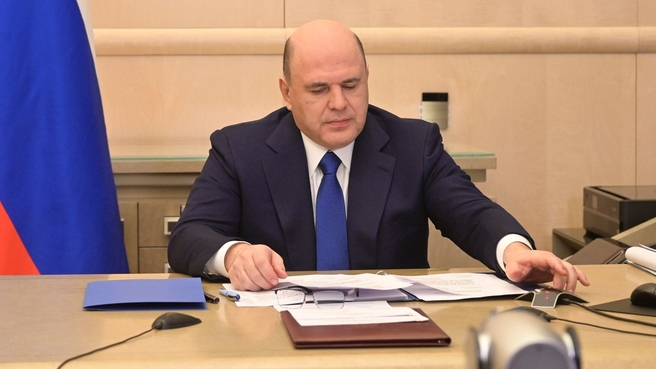The agenda: support of high-tech industries, lower taxation load on entrepreneurs, criteria to determine the importance of cultural heritage landmarks.
Mikhail Mishustin’s welcoming remarks:
We will get down to today’s agenda a little later. Now I would like to say a few words about measures that would help entrepreneurs to introduce the most advanced innovations more actively.
The Government continues to support high-tech industry sectors. We focus on import substitution programmes in the most sensible spheres. And, of course, the main priority is innovative projects aimed at fulfilling the task set by the President to expand non-resource non-energy exports.
The Government will fast-track the procedure to grant a universal subsidy for research and design related to the production of competitive products. The corresponding resolution has been signed. This tool makes it possible for businesses to recoup a significant part of the expenses for adjustment and purchase of equipment, components, raw materials, and the manufacture of prototypes. We have discussed this area many times during our meetings with representatives of industrial enterprises, in the Altai Territory and in Voronezh among others.
The requirements for subsidies will be significantly reduced for innovative products created to implement socioeconomic initiatives. This will also make it possible to provide state support to domestic manufacturers that produce essential products in small batches, for example, complex equipment for the chemical industry, or oil and gas engineering. In general, over 19 billion roubles have been allocated for these payments in the three-year federal budget. There will be less regulatory reporting. We will increase the time available for eliminating violations related to the implementation of innovative projects from six months to a year. This will protect bona fide companies. After all, sometimes broken deadlines and indicators happen for objective reasons, including the impact of sanctions risks.
We hope that these changes will become a good incentive for the creation of up-to-date facilities and high-tech jobs.
Today the Government’s agenda includes the reduction of the taxation burden for Russian entrepreneurs. We will amend the legislation to simplify businesses’ procedures regarding the results of intellectual activities, such as inventions, useful models and industrial prototypes. Now entrepreneurs will no longer need to pay value added tax for transactions to transfer rights to such intellectual property based on a commercial concession agreement, including with foreign partners. We expect that the new amendments to the Tax Code will contribute to a more active introduction of up-to-date solutions in various industries, helping, as the President said, to maintain steady progress in the sphere of innovation, including through incentive measures and fine-tuning of our regulatory system.
The next issue is on the development of culture and the preservation of Russian historical objects. There is a special focus on this topic, and the entire year of 2022 will be dedicated to this. The President announced that 2022 will be the Year of Cultural Heritage of the Peoples of Russia. Today we will examine amendments that would set out a number of important criteria to determine the value of cultural, historical and social sites. They will be used to develop state and municipal programmes. It is necessary in order to form a clear vision of which landmarks should be renovated first. This system of criteria will facilitate a clearer and more effective distribution of budget money on these goals.
Russia is rich with unique cultural heritage sites. All of them preserve the traditions of the peoples living in those areas. A lot of museums, reserves and architectural landmarks have been included in the list of UNESCO World Heritage Sites. And, of course, we must carefully preserve them and pass them on to future generations.
Let us get down to the discussion.









